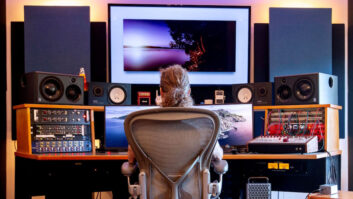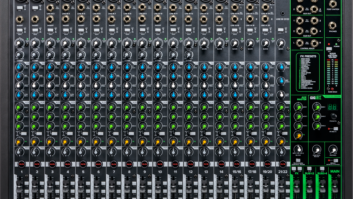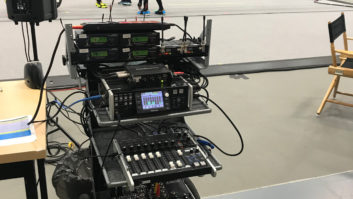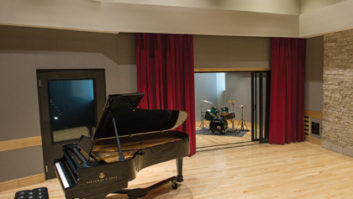Over the past three decades, Sheffield Audio-Video Productions has quietly grown into one of the most successful multimedia production operations in the mid-Atlantic region, with excellent recording and post facilities at their base outside Baltimore, and a nationally renowned remote operation centered around its impressive, SSL Axiom MT-equipped recording truck. The company stays busy with a combination of high-profile clients and smaller regional work; its growth has been steady as its reputation has increased. Less well-known is the fact that Sheffield also has its own audio-video school – the Sheffield Institute for the Recording Arts (SIRA) – which was certified by the Maryland Higher Education Commission six years ago.
“We’re not trying to be a big school like Full Sail or SAE or any of those,” comments Richard Van Horn, Sheffield’s president. “But we’re a good size – about 60 students – and it’s working out real well for everybody. We mainly draw from the Baltimore-Washington market.”
As befits a company that specializes in both audio and video engineering work, the Sheffield Institute has two distinct learning tracks, with a third just getting started as we went to press: “AudioWorks is a recording and sound engineering program, and VideoWorks is about video production and editing,” says Sal Chandon, director of education for SIRA and Sheffield’s general manager of in-house audio facilities. “Right now we’re in the process of getting approval for a MaintenanceWorks program, which will be component-level trouble-shooting and repair for professional audio and video equipment. It’s going to be similar to going to an ITT technical school or something like that for electronics technology, but specifically geared toward this industry, which we see as a big, big deal.”
All three tracks are intensive five-and-a-half month programs (or can be spread over a year, at night) and take place in Sheffield’s working studios, “so students are learning on the same equipment that’s being used for outside clients. Also, the instructors are people who are doing engineering for outside clients,” Chandon notes. “We don’t have anybody on staff who is just an instructor. Every one of our staff people are engineers first and foremost and have an interest and talent for instruction as well.” A new studio being built primarily for use by the school, but still featuring an SSL console, is currently under construction.
“We’re trying to give students a well-rounded introduction to the industry,” Chandon comments. “We’re trying to have graduates who are ready for entry-level into a number of different areas. What we focus on in our training is getting down to the root of things – understanding signal flow, for example. If we can teach them signal flow in its most basic form, it won’t matter that they learned on an SSL. They can go to a Neve or a Mackie or a Yamaha and they’ll get it. The same with the camera technology on the VideoWorks side: If they understand the video signal and how it’s supposed to get from point A to point B, they’ll be able to take that camera out in the field and gather news or work on documentaries, whatever the case may be.”
The AudioWorks track consists of six courses: three on recording – Basic, Advanced and Advanced Level 2 – and classes on Non-Linear Digital Audio Editing (Pro Tools), MIDI and Live Sound/Remote Recording.
“People used to take these kind of programs primarily because they wanted to get out into the work force and they wanted to land a job in a studio or a post-production house and do that for a living,” Chandon says. “We’re still getting those, but we’re starting to see a different kind of student – we’re getting people who want to educate themselves, because they have already purchased or are planning to purchase equipment for a project studio. That’s a tremendous growing segment of our industry.
“We also get people who are expanding their skills, because they’re already in jobs and maybe they’ve been promoted to a certain level, and they need to learn a bit more,” he continues. “You’d be surprised how many corporations have sophisticated recording and video production facilities. We’ve also done some retraining. In our area, Bethlehem Steel had a major plant where production had declined and they had serious layoffs, and part of their concession with the union was that they would retrain people who got laid off, so we got quite a few students that way.”
Chandon says that SIRA is happy with its regional orientation and has no designs on continually expanding its operation. “We have a real commitment to technology and how it’s going to help shape what we’re doing in the coming years. That’s what we’re about.”
For more info:www.sheffieldav.com.







